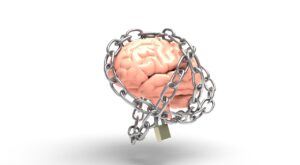
The Importance of Health and Wellness for Seniors
As we age, our health and wellness become even more crucial to our overall well-being. Seniors need to prioritize their physical and mental health to maintain a high quality of life. Taking care of ourselves as we grow older allows us to enjoy our golden years to the fullest. From staying physically active to nurturing our mental health, there are several essential tips that can help seniors unlock happiness and maintain their health and wellness.
Tips for Maintaining Physical Health in Seniors
Physical health is the foundation of overall well-being, and it becomes increasingly important as we age. Regular exercise is key to maintaining strength, flexibility, and mobility. Engaging in activities such as walking, swimming, or yoga can improve cardiovascular health, reduce the risk of chronic diseases, and boost mood. It is important for seniors to consult with their healthcare provider before starting a new exercise program, to ensure it is tailored to their specific needs and abilities.
In addition to exercise, seniors should prioritize proper nutrition. A well-balanced diet rich in fruits, vegetables, lean proteins, and whole grains provides the necessary nutrients to support a healthy body. Staying hydrated is also crucial for seniors, as dehydration can lead to various health issues. It is recommended to drink at least eight glasses of water per day, and more if engaging in physical activity or in hot weather.
Lastly, getting enough restorative sleep is essential for seniors’ physical health. Good sleep promotes healing, rejuvenation, and supports cognitive function. Establishing a regular sleep schedule, creating a comfortable sleep environment, and practicing relaxation techniques can improve the quality of sleep for seniors.
Mental Health Therapy for Seniors
Mental health is just as important as physical health, and seniors should prioritize their emotional well-being. Mental health therapy can be beneficial for seniors who are experiencing depression, anxiety, grief, or other emotional challenges. Therapy provides a safe and supportive space to explore and manage these feelings, and can assist seniors in developing coping mechanisms and strategies to improve their mental well-being.
There are various types of therapy that can be effective for seniors, such as cognitive-behavioral therapy (CBT), which focuses on identifying and changing negative thought patterns and behaviors. Additionally, group therapy and support groups can provide seniors with a sense of community and connection, reducing feelings of isolation and loneliness.
How to Improve Mental Health in the Elderly
Improving mental health in the elderly involves a holistic approach that addresses various aspects of well-being. Engaging in activities that bring joy and purpose, such as hobbies, volunteering, or spending time with loved ones, can significantly improve mental well-being. Maintaining social connections is also crucial, as isolation and loneliness can negatively impact mental health.
Practicing mindfulness and relaxation techniques, such as meditation or deep breathing exercises, can help seniors manage stress and promote a sense of calm. Engaging in activities that stimulate the mind, such as puzzles, reading, or learning a new skill, can also improve cognitive function and boost mental well-being.
It is important for seniors to communicate openly with their healthcare provider about their mental health concerns. Healthcare professionals can provide guidance, support, and appropriate referrals to mental health specialists if needed.
Wellness Tips for Seniors
In addition to physical and mental health, overall wellness encompasses various aspects of well-being, including emotional, social, and spiritual health. Seniors can enhance their wellness by incorporating these tips into their daily lives.
Firstly, practicing self-care is crucial. This involves taking time for oneself, engaging in activities that bring joy and relaxation, and prioritizing personal needs. Self-care can be as simple as enjoying a hot bath, reading a book, or practicing a hobby.
Secondly, maintaining social connections is vital for seniors’ well-being. Regularly engaging with friends, family, and community can foster a sense of belonging and reduce feelings of loneliness. Joining clubs, participating in group activities, or volunteering are excellent ways to stay socially active and connected.
Lastly, nurturing spiritual health can greatly contribute to seniors’ overall wellness. This can involve engaging in religious or spiritual practices, spending time in nature, or practicing gratitude and mindfulness.
The Role of Nutrition in Seniors’ Health and Wellness
Proper nutrition plays a vital role in seniors’ health and wellness. As we age, our bodies require specific nutrients to support optimal functioning. A well-balanced diet that includes a variety of fruits, vegetables, whole grains, lean proteins, and healthy fats is essential for seniors’ overall health.
Certain nutrients are particularly important for seniors. Calcium and vitamin D are essential for maintaining strong bones and preventing osteoporosis. Seniors should include dairy products, leafy greens, and fortified foods in their diet to ensure an adequate intake of these nutrients.
Omega-3 fatty acids, found in fatty fish, walnuts, and flaxseeds, are beneficial for brain health and can reduce the risk of cognitive decline. Seniors should aim to include these foods in their diet regularly.
It is also important for seniors to be mindful of their calorie intake and portion sizes. As metabolism naturally slows down with age, consuming excessive calories can lead to weight gain and other health issues. Consulting with a registered dietitian can provide personalized guidance on nutrition for seniors.
Exercise and Fitness for Seniors
Exercise and fitness are crucial components of seniors’ health and wellness. Regular physical activity can improve cardiovascular health, maintain muscle and bone strength, and enhance overall mobility and functional abilities.
Seniors should aim for a combination of aerobic exercise, strength training, and flexibility exercises. Aerobic exercises, such as walking, swimming, or cycling, increase heart rate and improve cardiovascular health. Strength training exercises, such as lifting weights or using resistance bands, help maintain muscle mass and strength. Flexibility exercises, such as stretching or yoga, improve joint mobility and flexibility.
It is important for seniors to start slowly and gradually increase the intensity and duration of their exercise routine. Listening to their bodies and avoiding overexertion is crucial to prevent injuries. Consulting with a healthcare provider or a certified fitness professional can provide guidance on suitable exercises and intensity levels for seniors.
The Benefits of Social Interaction for Seniors’ Health and Wellness
Social interaction plays a vital role in seniors’ health and wellness. Maintaining social connections can improve cognitive function, reduce the risk of depression and anxiety, and enhance overall well-being.
Regular social engagement provides seniors with a sense of purpose, belonging, and support. It can help prevent feelings of isolation and loneliness, which are common among older adults. Participating in group activities, joining clubs or organizations, or volunteering are excellent ways for seniors to stay socially active and connected.
Technology can also play a role in fostering social connections for seniors. Video calls, social media platforms, and online communities provide opportunities for virtual interactions and can help bridge the gap between physical distances.
Resources for Seniors’ Health and Wellness
There are various resources available to support seniors’ health and wellness. Here are a few key resources that seniors can utilize:
- Healthcare providers: Regular check-ups and consultations with healthcare providers can ensure that seniors receive appropriate care and guidance for their specific needs.
- Community centers and senior centers: These establishments often offer a wide range of programs, activities, and support services tailored to seniors’ needs. They can provide opportunities for social interaction, exercise classes, and educational workshops.
- Mental health professionals: If seniors are experiencing mental health concerns, seeking the help of mental health professionals, such as therapists or counselors, can provide valuable support and guidance.
- Registered dietitians: Consulting with a registered dietitian can provide personalized guidance on nutrition and dietary needs for seniors.
- Support groups: Joining support groups specific to seniors’ interests or health conditions can provide a sense of community and support.
Conclusion
Unlocking happiness and maintaining health and wellness is essential for seniors to enjoy their golden years to the fullest. Prioritizing physical health through regular exercise, proper nutrition, and restorative sleep is crucial. Nurturing mental health through therapy, engaging in activities that bring joy, and practicing relaxation techniques can significantly improve overall well-being. Embracing wellness by practicing self-care, maintaining social connections, and nurturing spiritual health contributes to a balanced and fulfilling life. By utilizing the available resources and support, seniors can unlock happiness and enjoy a healthy and fulfilling lifestyle.
Unlock the key to happiness and wellness in your golden years. Prioritize your health and well-being today!



